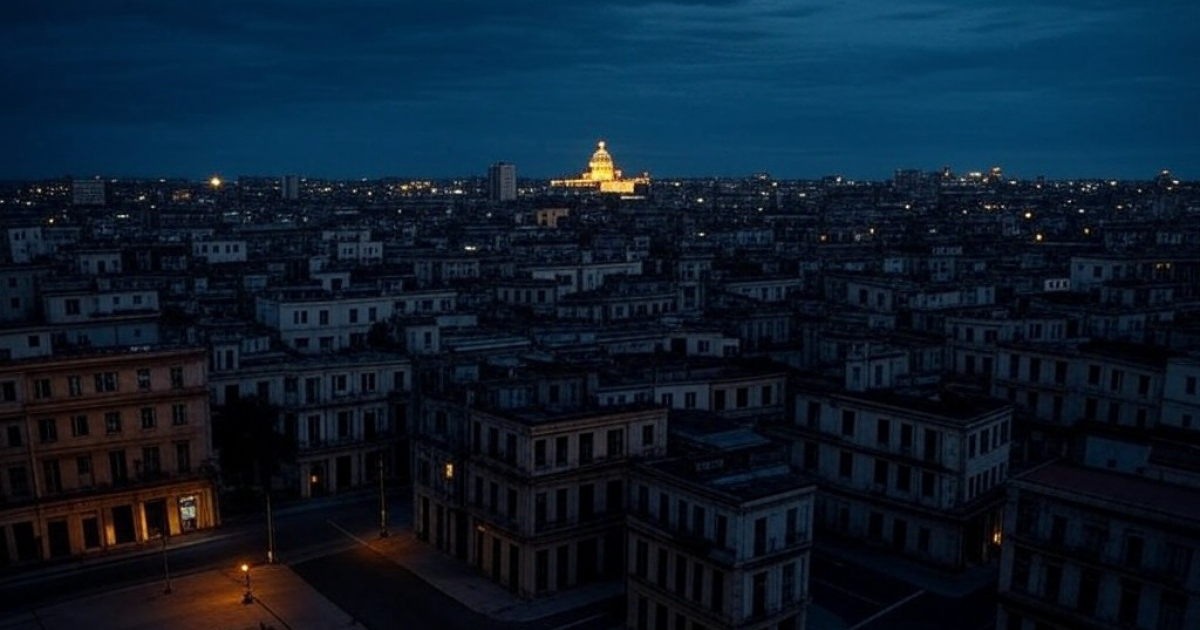Cuba, a nation that requires around 3,000 megawatt-hours but can only generate 1,700 MW, continues to provide its citizens with sporadic access to this essential resource. Under the leadership of Miguel Díaz-Canel, who advocates for "continuity," the Cuban government has been unable to alleviate the ongoing energy crisis that results in daily widespread blackouts.
In any democratic country, a crisis of this magnitude would likely have serious political repercussions. However, Cuba's totalitarian communist regime continues its ineffective energy policies with impunity, often invoking the "heroic" spirit of the Cuban people to endure hardships. This Sunday, the Cuban Electric Union (UNE) forecasted an availability of 1,740 MW against a peak demand of 3,000 MW, leading to a projected shortfall of 1,260 MW and resulting in power cuts of up to 1,330 MW.
Despite the public's outcry for a resolution to this long-standing ordeal, neither Díaz-Canel nor the Minister of Energy and Mines, Vicente de la O Levy, nor the director of the UNE, Alfredo López Valdés, have faced any political consequences for their mismanagement of the crisis. Years of unfulfilled promises, deceit, and outdated propaganda have not led to the dismissal of any officials, while ordinary Cubans continue to struggle, shackled by circumstances they cannot change and with little hope for improvement.
In a recent statement, Díaz-Canel claimed that "creative resistance cannot be just a slogan," inadvertently creating yet another slogan during the IX Plenary of the Central Committee of the Communist Party of Cuba (PCC). Neither "creative resistance," "correction of distortions," nor "projections" have been effective in halting the government's incompetence, as it fails to "revitalize the economy," produce sufficient electricity, or initiate a national dialogue for the crucial socio-economic and political transformation the country desperately needs.
In their isolated narrative of control and power, the Cuban regime's elites consider UNE's 'Information Notes' as evidence of their "concern" for the welfare of the population. This Sunday, the national electro-energetic system (SEN) remains crippled with five thermoelectric units out of service and another five under maintenance. As a result, with 10 thermoelectric units offline, restricted thermal generation of 234 MW, and 51 distributed generation plants out of commission due to fuel shortages (amounting to an additional 359 MW), the Cuban government faces the end of the year with a grim outlook for 2025.
The growing desperation among Cubans is matched by rising indignation, frustration, anger, and a desire for change, as patience wears thin, fear dissipates, and the public increasingly recognizes the erosion of social justice, the spread of corruption, rising inequality, and the exploitation by a ruling elite intent on monopolizing the nation's wealth.
Understanding Cuba's Energy Crisis
What are the main causes of Cuba's energy crisis?
Cuba's energy crisis is primarily due to outdated infrastructure, insufficient domestic production capabilities, and poor management by the government. The regime's policies have failed to address these issues effectively, resulting in frequent power outages.
How does the energy shortage affect everyday life in Cuba?
The energy shortage leads to daily blackouts, impacting everything from household activities to businesses and essential services, thereby exacerbating the living conditions for the Cuban population.
Has there been any recent attempt to solve the energy crisis in Cuba?
While there have been numerous promises and plans proposed by the government, none have effectively addressed the root causes of the energy crisis, leading to continued frustration among citizens.
